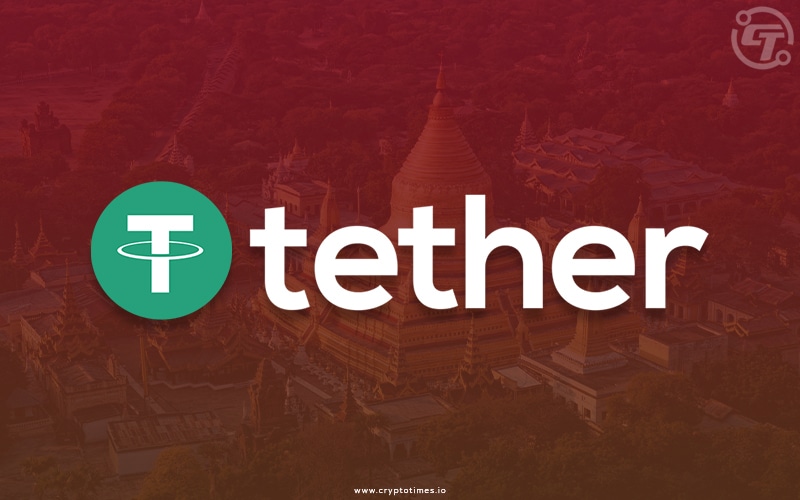In Brief:
- Myanmar’s exiled National Unity Government declared stablecoin Tether as the official currency.
- The declaration is part of its continuing fundraising campaign to overthrow Myanmar’s present military regime.
- Tether will be utilized to make current trade, services, and payment systems easier and speedy.
The exiled National Unity Government of Myanmar has declared stablecoin Tether as the nation’s official currency.
The Ministry of Planning, Finance, and Investment of the NUG published a post on Facebook proclaiming Myanmar’s kyat, the country’s official currency invalid, and Tether’s dollar-backed stablecoin as legal tender in its place.
The NUG’s finance minister Tin Tun Naing reportedly stated, “Tether will be for domestic use to make it easy and speed up the current trade, services, and payment systems.”
The NUG is an exiled government led by Aung San Suu Kyi, who is now imprisoned with a jail sentence of 2 years. NUG is a coalition of pro-democracy organizations and parliamentarians who were ousted by a military coup in February of this year.
Despite the fact that the NUG currently has no power or control over any territory in the country, the European Union officially acknowledged it as the country’s sole legitimate representative in October.
To maintain complete authority, Myanmar’s Central Bank under the military regime declared all digital currencies illegal in May of this year, threatening offenders with jail sentences and fines.
As stated in the Bloomberg report, The NUG recognizing Tether as an official currency is part of its continuing fundraising campaign to overthrow Myanmar’s present military dictatorship.
The exiled government also raised $9.5 million by selling “Spring Revolution Special Treasury Bonds” to Myanmar’s migrant communities all over the world. Despite the fact that sales were temporarily halted due to overwhelming demand until December 6, there is little info regarding how much money has been raised since then.
Privacy concerns and the present regime’s seizure of funds spurred the adoption of Tether as an official currency for local use. The kyat, the nation’s current official currency, has lost nearly 60% of its value against the dollar since the start of September.
This isn’t the first time a country has announced cryptocurrencies as a legitimate currency choice. El Salvador adopted Bitcoin as legal tender earlier this year which too was met with a lot of criticisms.
Tether has been the subject of numerous debates over the years, and a Japanese financial services agency recently announced plans to limit stablecoin issuance to banks and wire transfer providers in 2022. The suggestion was made to protect consumers from the risks that asset-backed stablecoins like Tether pose.






